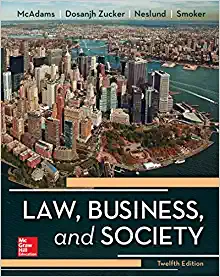Question
1. Linda joined ABC Corporation upon graduating college and worked as a clerk in a manufacturing plant. She later became manager of the plant. Linda
| 1. | Linda joined ABC Corporation upon graduating college and worked as a clerk in a manufacturing plant. She later became manager of the plant. Linda then progressed to a product division as manager. In this role, she influenced most of the resources needed for her to be successful, but did not have authority to make investment decisions. She later was promoted to vice-president of a corporate group where she had the authority to not only generate a profit, but also to make investment decision.
Which of the following best describes the chronology of her career at ABC? | |
| A) | managed a cost center, worked in a cost center, managed an investment center, managed a revenue center., | |
| B) | managed an investment center, worked in a cost center, managed a cost center, worked in a revenue center. | |
| C) | managed a profit center, managed a cost center, worked in an investment center, managed a cost center. | |
| D) | worked in a cost center, managed a cost center, managed a profit center, managed an investment center. | |
| E) | managed a profit center, worked in a cost center, worked in a profit center, worked in a revenue center. |
| 2. | Delzam Company has two divisions, Zil and Zat. The company's overall contribution margin ratio is 40% when combined sales in the two divisions total $900,000. If variable expenses are $200,000 in Division Zil and if Division Zat's contribution margin ratio is 20%, the sales in Division Zat must be: | |
| A) | $200,000. | |
| B) | $425,000. | |
| C) | $700,000. | |
| D) | $340,000. | |
| E) | $475,000. |
| 3. | Decentralized firms can delegate authority by structuring an organization into responsibility centers. Which of the following organizational segments is most like a totally independent, standalone business where managers are expected to "make it on their own" and can raise their own capital? | |
| A) | Cost center. | |
| B) | Revenue center. | |
| C) | Profit center. | |
| D) | Investment center. | |
| E) | Contribution center. |
Use the following to answer questions 4-6:
The following information was taken from the segmented income statement of Dalton, Inc.:
Dalton St. Louis Chicago Peoria
Inc. Division Division Division
Revenues $760,000 $200,000 $235,000 $325,000
Variable operating expenses 410,000 110,000 120,000 180,000
Controllable fixed expenses 210,000 65,000 75,000 70,000
Noncontrollable and traceable fixed expenses 60,000 15,000 20,000 25,000
In addition, Dalton incurred common fixed costs of $18,000.
| 4. | Chicago's segment profit margin is: | |
| A) | $14,000. | |
| B) | $18,000. | |
| C) | $20,000. | |
| D) | $40,000. | |
| E) | $115,000. |
| 5. | Assuming use of a responsibility accounting system, which of the following profit measures should be used to evaluate the performance of the St. Louis Division Manager? | |
| A) | $4,000. | |
| B) | $8,000. | |
| C) | $10,000. | |
| D) | $25,000. | |
| E) | $90,000. |
| 6. | Assume that the St. Louis Division increases its promotion expense, a controllable fixed cost, by $10,000. As a result, revenues increase by $50,000. If variable expenses are tied directly to revenues, the new St. Louis controllable profit margin becomes: | |
| A) | $10,000. | |
| B) | $25,000. | |
| C) | $35,000. | |
| D) | $37,500 | |
| E) | $75,000 |
| 7. | The Sales Department of a General Motors Division would most likely be evaluated as a: | |
| A) | relevant range center. | |
| B) | revenue center. | |
| C) | profit center. | |
| D) | investment center. | |
| E) | contribution center.
| |
| 8. | Consider the following statements about goal congruence: I) Goal congruence is obtained when managers of subunits are given the freedom to use any means to achieve the subunits projected goals regardless of the impact on overall company performance. II) The incentives for goal congruence should reward the manager for good performance that makes the company as a whole successful. III) Achieving goal congruence in most large organizations is relatively straightforward and easy to accomplish. Which of the above statements is (are) true? | |
| A) | I | |
| B) | II | |
| C) | I and II | |
| D) | II and III | |
| E) | I,II, and III
financial performance measures. customer performance measures. learning and growth performance measures. internal-operations performance measures.
An increasingly popular approach that integrates financial and customer performance measures with measures in the areas of internal operations and learning and growth is known as: the integrated performance measurement tool (IPMT). the balanced scorecard. gain sharing cycle efficiency. |
Step by Step Solution
There are 3 Steps involved in it
Step: 1

Get Instant Access to Expert-Tailored Solutions
See step-by-step solutions with expert insights and AI powered tools for academic success
Step: 2

Step: 3

Ace Your Homework with AI
Get the answers you need in no time with our AI-driven, step-by-step assistance
Get Started


